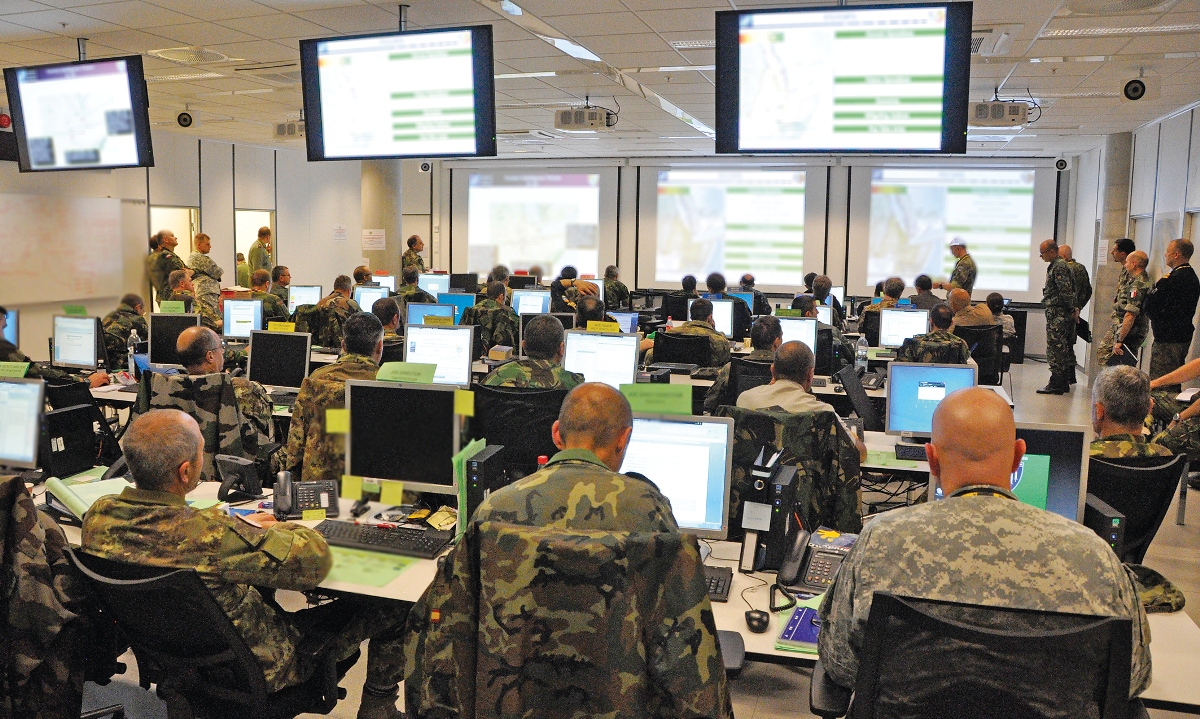AhlulBayt News Agency (ABNA): Earlier this week, defense ministers of the members of the (Persian) Gulf Cooperation Council agreed on foundation of a joint command center in Riyadh. The decision was made at their 18th meeting on Monday.
According to comments by (P) GCC Secretary-General Nayef Falah Mubarak al-Hajraf, who talked at the opening of the meeting, the main aim behind such center is protection of security and gains of the Persian Gulf Arab states and unification of their capabilities and powers in the face of imminent threats by those seeking to undermine the security of people in the member states.
Security concerns and the US withdrawal from the region
The tendency to build regional coalitions to deter the common threats, which is also called the principle of balance-making, comes as two or multiple regional actors are unable to make a balance with the rivals or check the threat sources. So they seek coalitions to this end.
Although the Cooperation Council is a regional organization with goals beyond security issues, a feeling of threat by regional developments in the late 1970s, with the victory of the Islamic Revolution in Iran and the Soviet occupation of Afghanistan and the collapse of the region's Western-designed security architecture, was practically the main reason for its foundation. So, it was founded with a US role to preclude growth of Iran's revolutionary discourse in other countries of the region as a way to make a balance in the face of newly-installed political system in Tehran.
In 1984, the members of the Cooperation Council decided to create a joint military force called the "Peninsula Shield Force."
In the past two decades, especially after 2011, the year the region went under fast-moving developments following a series of popular uprisings in the Arab countries, significant geopolitical developments have taken place in the geometry of power and regional coalitions, including the overthrow of the Ba'athist regime in Iraq and the rise of Shiite forces in the country, the rise of Turkey under Recep Tayyip Erdogan as a new Muslim World leadership claimant, reinforcement of the Iran-led Axis of Resistance following triumphant gains by Palestine, Lebanon, Syria, and Yemen in the face of serious challenges, and the last year Arab-Israeli normalization agreement.
Meanwhile, an important change in the regional situation, which is perhaps the most important variable influencing the decision of the Cooperation Council countries to move towards rebuilding, updating, and improving the efficiency of past military alliances based on the current conditions, is the gradual withdrawal of US troops from the region.
The scandalous withdrawal of the US from Afghanistan, which symbolizes the decline of Washington's global military and political hegemony, is an issue that will complicate the security dilemma for the Arab countries of the Persian Gulf. The (P) GCC, of course, had previously experienced a major shock after Washington's inaction as an ally with security and military commitment to the Arab monarchies following attacks on the Saudi oil giant Aramco in 2018.
With the old defense mechanisms, like Peninsula Shield Force, proving increasingly ineffective, especially because of the three-year Qatar blockade in 2017, a joint command center with encouragement of the US is meant to rehabilitate the bloc's defense cooperation structure.
(P) GCC's security loopholes remain in place
The most important message passed by the joint command center foundation is unity of the member states in the face of the threats. However, extreme military reliance on the foreign powers, mainly the US, existence of considerable territorial, border, political, and ideological differences, and geopolitical competition among the members over the past four decades have generated inefficiency inside the bloc in historical nick of time. A showcase of this failed coalition making is Saudi-led invasion of Yemen in 2015.
Whereas Yemen war as the most important and all-time threat to the Saudi rule is a test of, firstly, the military capabilities of the Saudi Arabia and the UAE as the strongest members of the Cooperation Council and, secondly, the joint defense agreements of the bloc, Qatar crisis apparently disclosed the inability of the joint defense structures to address the security concerns of the smaller members about the hegemonic desires of the bigger members. Signing defense and military pacts with Turkey, Qatar now seeks to address its security needs outside the box of the Cooperation Council. Additionally, the Kuwaitis are insisting on maintaining the American military cover. Such big security loopholes overshadow the freshly-founded joint command center as the latter is coming to existence without a realistic understanding of the intra-member differences.
/129

